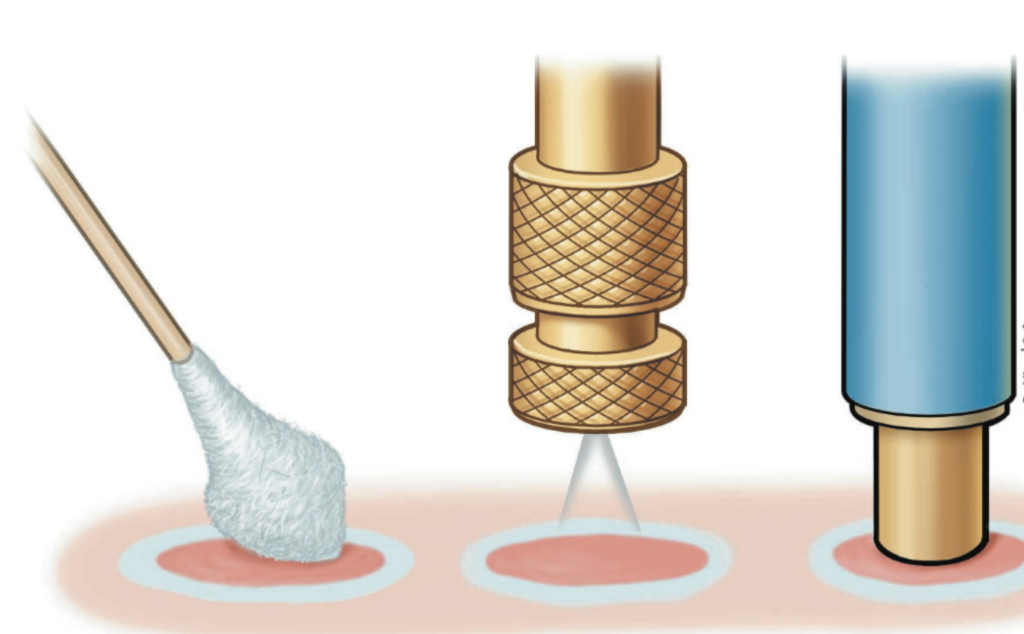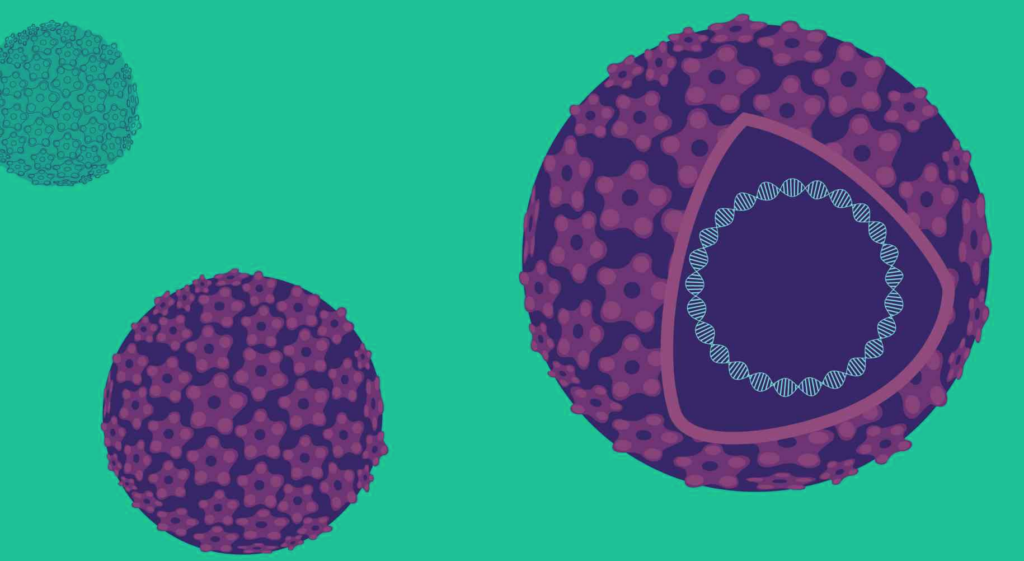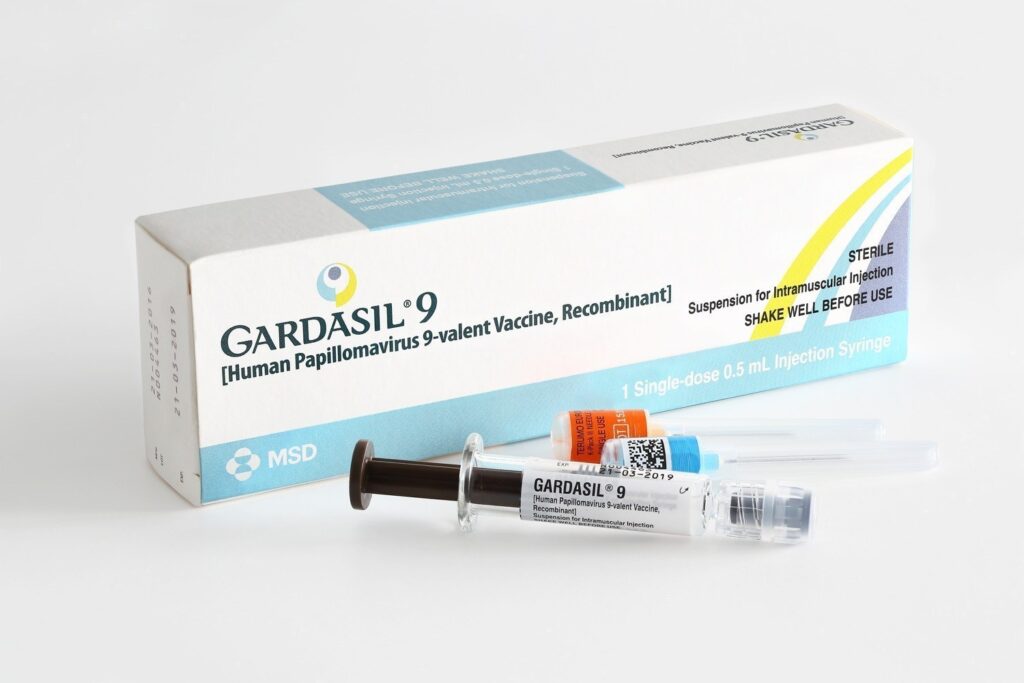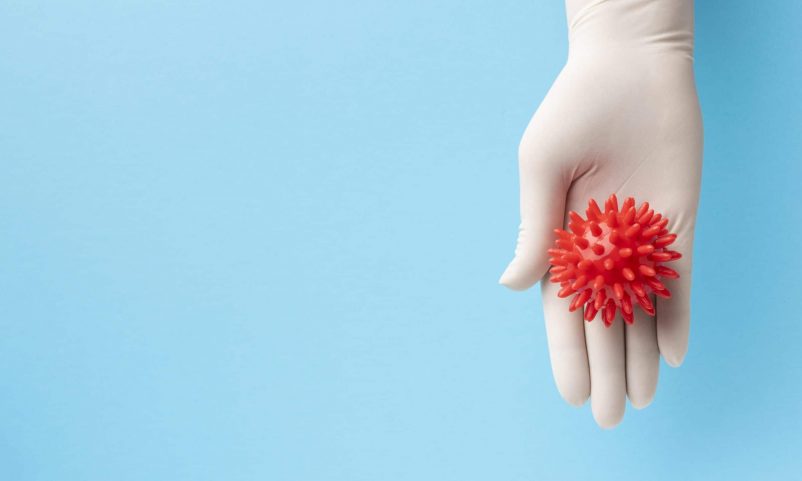What are Genital Warts?
Genital warts are benign fleshy bumps that grow over the genital region. They can usually appear as a single bump, or as multiple growths, most commonly resembling the appearance of a cauliflower.
Genital warts are caused by infection with the Human Papilloma Virus (HPV).
This infection is usually acquired through sexual contact and is considered a type of Sexually Transmitted Disease (STD).
What Are The Symptoms of Genital Warts in Females?

The most common presenting symptom of genital warts in females is the presence of bumps felt over the vaginal or genital region.
These bumps are usually:
- Painless
- Skin Coloured
- Classically described as having a “cauliflower-like” appearance
- It may or may not be slightly itchy
- It may appear as a single bump or as multiple bumps in clusters
- It may feel like a slightly raised bump or even feel like a skin tag
- Tend to increase in numbers or size if left untreated
- Occur most commonly at the bottom aspect of the vaginal opening (also known as the Posterior Fourchette), the Vulva or even around the Anal region
- Usually noticed incidentally by the patient during showering or washing
Are Genital Warts Dangerous?

Genital warts are most often benign and are usually not dangerous. While genital warts do not cause any long-term health impact, it is important to get them treated as soon as possible as it is a type of sexually transmitted disease which can be spread to your partner. Genital warts can also increase in number or spread, making treatment more difficult.
Additionally, being diagnosed with genital warts indicate that you have been exposed to the Human Papilloma Virus. There are many strains of HPV and they are usually transmitted through sexual contact.
Some strains of HPV cause genital warts, while other “high risk” strains can lead to increased risk of cancers such as cervical, oral and anal cancers.
Hence being diagnosed with genital warts may also mean that you could have been exposed to certain higher-risk strains of HPV which may increase your chance of cancer, particularly cervical cancer.
How Are Genital Warts Diagnosed?

Genital warts are diagnosed usually as a clinical diagnosis. This means, it usually requires an experienced doctor who is able to recognize the characteristic appearance of a wart to accurately clinch the diagnosis.
Lumps and bumps are very common around the genital region, and there can be many reasons for them, of which genital warts are one of the common causes.
Hence, not all bumps that you feel around the genital region are caused by genital warts. It is important to get checked by your doctor to get an accurate diagnosis.
While genital warts are usually diagnosed clinically, it is also important to get tested for HPV.
Testing for HPV allows us to screen for the presence of high-risk strains of HPV which could potentially increase your risk of cervical, vaginal or vulvar cancer.
How Are Genital Warts Spread?

Genital warts are spread via sexual contact. Hence, it is a type of sexually transmitted disease.
As HPV can be transmitted as long as there is skin-to-skin contact, using a condom does not protect or prevent you from passing HPV or genital warts to your partner. The risk is unfortunately still present.
Exposure to HPV and warts can also occur not only via sexual intercourse but also through other types of sexual contact such as oral sex or anal intercourse.
As such, when you are diagnosed with genital warts, your doctor will usually advise you to abstain from sexual intercourse until your warts are completely treated.
There are also several myths or misconceptions on the internet that genital warts or HPV are acquired through poor hygiene or contact with dirty surfaces such as a dirty toilet bowl – such information is not true!
Genital warts and HPV is only spread via sexual contact.
What Is The Best Treatment For Genital Warts?

There are various methods of treating genital warts, ranging from topical medications to freezing or electrosurgery.
1. Aldara (Imiquimod)
Aldara is a type of medication that acts as an immune response modulator. It usually comes in the form of a cream.
The role of this medication is to improve the immune system’s response to fight against warts and to kill the surface skin cells that are infected by the virus.
Aldara comes in tiny sachets of medications. As the medication has a strong and burning effect, it cannot be used daily as it can cause unwanted skin irritation.
The correct method of using this medication is to apply a small amount of the medication over the affected area. This is to be done only about 3 times per week. The medication is usually applied before the patient goes to bed, left overnight for approximately 6-8 hours, and then washed off the next morning.
It may require several weeks of treatment with Aldara before warts can be completely treated. This of course also depends on the severity of genital warts, to begin with.
When using Aldara, it is advised to abstain from sexual activity (also because of the risk of transmission of genital warts). Aldara is also strictly NOT to be used during pregnancy.
2. Podophyllin Toxin
Podophyllin toxin is a type of chemical that we can apply or “paint” onto warts to kill the wart’s growth. Unlike Aldara, which is self-applied by the patient at home, the application of Podophyllin Toxin is only done by doctors in the clinic setting.
The content of the medication contains strong chemicals which can be abrasive, and hence it is important to apply the medication carefully only to the affected areas and not to affect the surrounding skin.
Application of the medication is usually done weekly at the doctor’s clinic, so this will require weekly appointments with your doctor until the warts are completely gone. This may require several visits as well.
Podophyllin toxin can usually be applied quite quickly in just a few minutes. This procedure is usually associated with very mild discomfort or no pain at all.
Patients are also required to wash off the medication about 4-5 hours after your visit to the doctor, as leaving it on for too long can lead to unwanted skin irritation due to the harsh contents of the medication.
This treatment is also NOT suitable for pregnancy.
3. Cryotherapy
One of the most commonly used methods of treating genital warts – is cryotherapy essentially means using liquid nitrogen to freeze the wart. This works by freezing the outer layer of the wart hence killing the cells – this will lead to the wart dying off and eventually shrinking or falling off.
Cryotherapy has been a very popular and successful method of treatment for warts for many years. This procedure also usually just takes a few minutes, and needs to be done by an experienced medical professional.
Each session is usually done once a week and multiple sessions are usually required for complete resolution.
The liquid nitrogen is usually sprayed onto the wart, after which the wart will turn a pearly white colour for a few seconds, after which your skin thaws out. This reaction indicates the killing of the cells on the wart’s surface.
The procedure is generally very well tolerated, with the patient experiencing some mild discomfort or numbing sensation as the wart is being sprayed.
There is usually no need for painkillers before or after the procedure.
This method of treatment helps to clear warts much quicker compared to the use of topical medications. There is also usually minimal to no scarring after warts have resolved or recovered.
The recovery process is also quick and fuss-free, making this one of the more popular treatment methods for warts.
4. Electro-surgery
Electro-surgery is a removal technique that involves performing a minor surgical procedure in the clinic. This method of removal makes use of an instrument that transmits radiofrequency and heat waves to “burn” off the wart from the skin.
As this procedure is usually performed under local anaesthesia, it is usually painless and quite well tolerated.
Using the electro-surgery method is a much safer method of wart removal compared to the conventional method of cutting with a knife or scalpel. This reduces the risk of bleeding and infection as well.
After the wart is burnt off, you will be left with a raw area of skin at the site of removal. This would look like a typical abrasion wound. These wounds usually take about 1-2 weeks to heal up and usually heal quite well.
You will be given wound care advice and antibiotic cream to apply to prevent infection.
The advantage of using this method is that warts can usually be completely removed after this one session. However, this procedure usually takes longer, requires more healing and is a bit more invasive compared to the other methods.
Not all types of warts are suitable to be removed via electrosurgery and this has to be assessed by your doctor.
5. Laser Removal
If all the above methods fail, laser removal is usually performed to burn off the wart using ablative lasers such as the CO2 laser.
This method can be painful and hence will also require numbing injections or creams.
This method of removal is usually done for warts that are deeper such as cervical warts. It is usually performed in the hospital and is also expectedly, the most expensive method of removal.
How To Prevent Genital Warts From Coming Back?

After going through all the hassle to get rid of those warts, I am sure you would want to do all you can to prevent them from coming back.
The good news is that there are certain precautions that we can take to reduce the risk of recurrence of genital warts!
1. Stick to a regular partner
As genital warts are passed through sexual contact, sticking to one regular partner will help to reduce your chances of recurrence.
On the other hand, exposure to multiple different partners will increase your risk of exposure to HPV and hence increase the chance of recurrence.

This is one of the most crucial steps to take, especially after one has been diagnosed with genital warts.
As the same Human Papillomavirus can also increase your risk of cervical/anal/vaginal/vulva cancer, it is especially important to get vaccinated with the HPV vaccine to protect yourself against the high-risk strains.
With such life-changing medical technology that allows us to prevent cancer or warts with a simple jab, this is absolutely recommended.
The latest type of HPV vaccine currently is the Gardasil 9, which protects against 9 high-risk strains of HPV.
3. Get your partner vaccinated as well
Yes, that is right, the HPV vaccine is not only meant for girls, but for guys as well!
The best way to ultimately reduce your exposure and risk of HPV again is for both you and your partner to get vaccinated.
Guys who are vaccinated with Gardasil 9 are protected from genital warts, penile cancer and anal cancer.
What Precautions Must I Take If I Have Genital Warts?
As mentioned above, genital warts are spread via sexual contact and are a type of sexually transmitted disease. Hence, when you are diagnosed with genital warts or are still in the midst of treatment, it is important to abstain from sexual intercourse.
While condoms do reduce the transmission of sexually transmitted diseases in general, they may not prevent the spread of warts as they can be spread purely by skin-to-skin contact.









